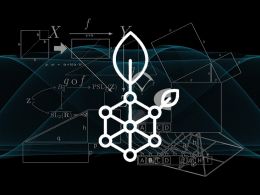
EU Data Act Proposes Shutdown Function for Smart Contracts
The European Union has published its new Data Act, a law proposal that aims to regulate the generation and handling of data by the actors that harness it. The act, in its large scope, touches on the subject of smart contracts and proposes that every smart contract should have a termination function to stop the flow of transactions when required. Smart Contracts Might Be Stifled by EU Data Act The newly proposed EU Data Act, published on February 23, aims to regulate and control the ways in which data is being generated, bringing legal clarity to the data market in Europe.....
Related News
The life cycle of smart contract development involves crucial steps: create, freeze, execute and finalize. Can a smart contract be destroyed?Yes, smart contracts can be destroyed using the selfdestruct function.Ethereum smart contracts provide a selfdestruct function that allows them to destroy a contract on the blockchain system. It is, however, a two-edged sword for developers. On the one hand, the selfdestruct function allows developers to delete smart contracts from Ethereum and transfer Ether in the event of an emergency, such as an attack. On the other hand, this function might add....
Hackers are soon going to be the new lawyers as the adoption of smart contracts increase in the near future. The advent of Blockchain 2.0 and Blockchain 3.0 has given rise to new ways of automation using Bitcoin’s underlying technology. There are special cryptocurrency platforms like Ethereum, Rootstock, Counterparty, Lisk and more that allows people to create smart contracts on the blockchain. These smart contracts enable automation by allowing developers to set trigger conditions. These trigger conditions are certain prerequisites, when met, will execute the function programmed on the....
Blockchain technology supports cryptocurrencies but can also be used for supply chain tracking, identity management systems, healthcare and more. Can smart contracts exist without blockchain?Blockchain technology is necessary for smart contracts to function because it enables automated agreements to be conducted and carried out without the involvement of a third party. Similar to smart contracts, database systems can have self-executing components such as triggers and stored procedures. Still, they cannot enforce immutability because anyone with administrator rights can undo any....
As the developer of a popular blockchain platform, I sometimes gets asked whether Ethereum-like smart contracts are on the MultiChain roadmap. The answer I always give is always: 'No, or at least not yet'. But in the hype-filled world of blockchains, smart contracts are all the rage, so why ever not? Well, the problem is, while we now know of three strong use cases for permissioned bitcoin-style blockchains (provenance, company recordkeeping and lightweight finance), we've yet to find the equivalent for Ethereum smart contracts. It's not that people don't understand what they want smart....
Although smart contract projects on alternative blockchains such as Ethereum are gaining a lot of attention, smart contracts on the Bitcoin blockchain itself are challenging because the Bitcoin network is not a “Turing Complete” system. A Turing Complete system is one that can compute any algorithmically computable function (although with no guarantees regarding runtime or memory). The Bitcoin network has purposefully omitted Turing completeness to allow the economic incentives the network has been able to create, and for minimizing the security risks that come with self-executable....





